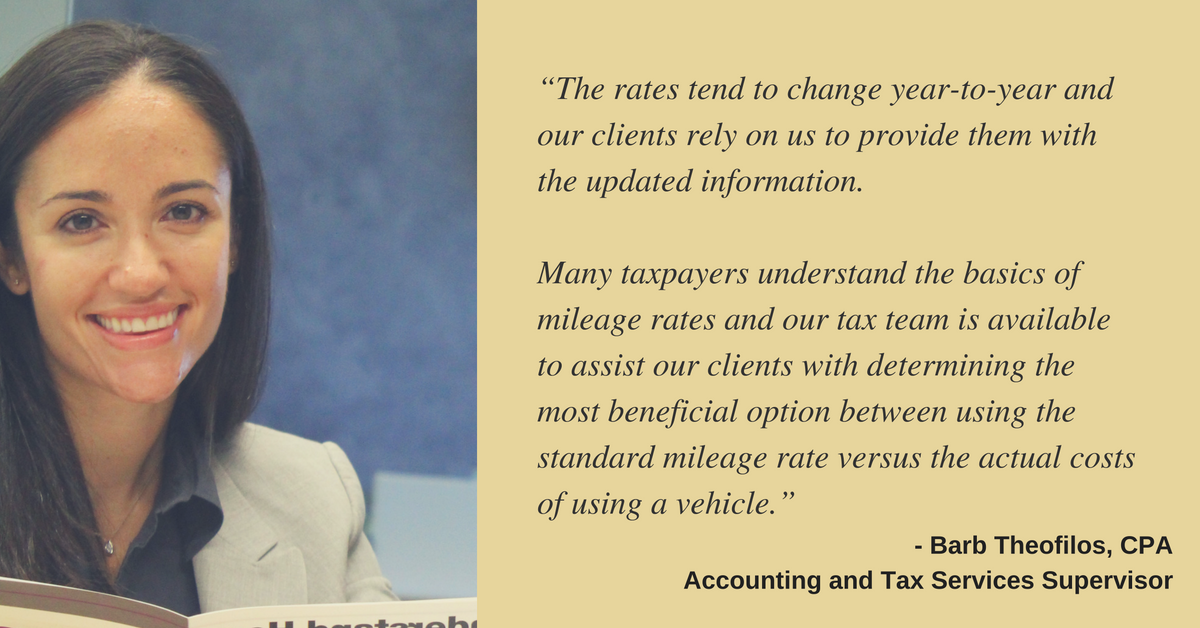On December 18, 2015, President Obama signed legislation called “Protecting Americans from Tax Hikes” Act of 2015, or the PATH Act for short.
The PATH Act contained many extensions and changes to existing tax laws. The Act also included a provision which will delay refunds for certain taxpayers. The IRS is now required to not issue a refund to anyone claiming the Earned Income Tax Credit or the Additional Child Tax Credit until February 15. Both of these refunds are considered “refundable credits,” which are essentially treated as additional tax payments, and can reduce one’s tax liability below zero. More, the PATH Act was enacted to give the IRS more time to review refund claims, in an effort to reduce fraud and catch refunds that may be improperly issued.
Do you have questions about the PATH Act, your refund, or income tax preparation? Let's talk! Contact me at btheofilos@zinnerco.com or any of the professionals here at 216.831.0733. We're ready to start the conversation and end the confusion.
Why You Will Not Receive a Tax Refund Before February 15
Barbara Theofilos, CPA, MBA fraud , Barbara Theofilos , Taxes - Individual , income taxIRS Lowers Mileage Rates for 2017
Barbara Theofilos, CPA, MBA Barbara Theofilos , Taxes - Corporate & Business , Taxes - Individual , IRSThe Internal Revenue Service has issued the 2017 optional standard mileage rates to calculate the deductible costs of operating an automobile for business, charitable, medical or moving purposes.
Nonprofit Filing Deadline Only Days Away
Barbara Theofilos, CPA, MBA Barbara Theofilos , not-for-profitThe November 15th deadline for non-profit organizations is quickly approaching. This is the final due date for calendar year non-profit organizations that have taken advantage of the two extensions already available to them. This includes organizations that are required to file Form 990, Form 990EZ and the online filing of Form 990N. (Keep in mind that the 990N is only required to be filed electronically once every three years to maintain tax-exempt status).
Zinner & Co. has held steady to many founding principles. The integrity of the firm is supported by a long-held belief to not only to show community support through fundraising events and company sponsorships, but also from a boots-on-the-ground approach.
Extension Periods for Various Tax Returns Revised
Barbara Theofilos, CPA, MBA Barbara Theofilos , Taxes - Corporate & Business , Taxes - Planning, Rules and ReturnsThe Highway Act changed the filing due dates of business income tax returns beginning for tax years after 12/31/15. Along with these changes the extension periods for other types of returns have also been updated. The following chart highlights these important revisions.
Changes to Filing Due Dates for Business Income Tax Returns
Barbara Theofilos, CPA, MBA Barbara Theofilos , Taxes - Corporate & Business , Taxes - Planning, Rules and ReturnsThe Highway Act is making changes to our familiar due dates for business income tax returns. To recap current due dates, form 1120 (U.S. Corporation Income Tax Return) is initially due two and a half months after the close of the corporation’s tax year and can be extended for a six month period.
Calendar year corporations are, therefore, initially due on March 15th following the end of the calendar year and can be extended through September 15th. Form 1065 (U.S. Return of Partnership Income) is initially due three and a half months after the close of the calendar year with an option for a five month extension. Calendar year partnerships are initially due April 15th with an extension making the due date October 15th.
Read more by Barb Theofilos: When Are Severance Payments Made to FICA?
About Us

Since 1938, Zinner has counseled individuals and businesses from start-up to succession. At Zinner, we strive to ensure we understand your business and recognize threats that could impact your financial situation.
Recent Blog Posts
Categories
- 1031 Exchange (2)
- 401k (2)
- 529 plan (4)
- ABLE Act (1)
- account systems (3)
- accounting (8)
- Affordable Care Act (8)
- alimony (2)
- American Rescue Plan Act (1)
- Ask the Expert (5)
- Audit and Assurance Department (13)
- audits (8)
- Bank Secrecy Act (1)
- banks (1)
- Barbara Theofilos (6)
- Beneficial Ownership Information (1)
- Bitcoin (1)
- block chain (2)
- BOI (3)
- Bookkeeping (1)
- Brett W. Neate (28)
- budgets (1)
- Bureau of Worker's Compensation (12)
- Business - Management, Issues & Concerns (50)
- business income deduction (3)
- business succession (7)
- business travel expense (3)
- business valuation (5)
- capital gains (2)
- careers (7)
- cash flow (2)
- Child Tax Credit (2)
- Chris Valponi (8)
- City of Cleveland (1)
- Cleveland COVID-19 Rapid Response Fund (1)
- Cleveland Rape Crisis Center (2)
- college (3)
- Community (24)
- Compliance (1)
- Coronavirus (24)
- Corporate Transparency Act (1)
- COVID-19 (30)
- Credit card fraud (5)
- credit reporting (2)
- cryptocurrency (2)
- CTA (2)
- cybersecurity (16)
- dead (1)
- DeAnna Alger (6)
- death (2)
- debt (4)
- deductions (14)
- Deferring Tax Payments (4)
- Department of Job and Family Services (2)
- depreciation (1)
- Digital Tax Payment (3)
- divorce (4)
- DOMA (3)
- Economic Impact Payments (2)
- Economic Injury Disaster Loan (4)
- education (8)
- EIDL (1)
- electronic filing (4)
- Electronic Tax Payments (3)
- Emergency Working Capital Program (1)
- employee benefit plan auditor (1)
- Employee Leave (2)
- Employee or Independent Contractor (6)
- Employee Retention Credit (3)
- employment (2)
- ERC (3)
- Eric James (8)
- Estates, Gifts & Trusts (48)
- expenses (5)
- Families First Coronavirus Response Act (2)
- FASB (1)
- FBAR (1)
- FDIC coverage (1)
- Federal Assistance (4)
- filing (3)
- financial planning (8)
- Financial Planning - College (9)
- financing (3)
- Firm news (119)
- first responders (1)
- FMLA (1)
- foreign assets (3)
- fraud (38)
- FSA (1)
- fundraising (9)
- Gabe Adler (1)
- gift tax (5)
- HDHP (2)
- health care (3)
- home (2)
- home office (1)
- Howard Kass (2)
- HRA (1)
- HSA (5)
- identity theft (33)
- income (1)
- income tax (58)
- independent contractor (1)
- Inflation (1)
- Insurance (7)
- internal control (4)
- international (2)
- Intuit (1)
- investments (4)
- IRS (91)
- jobs (5)
- John Husted (1)
- K-1 (1)
- Laura Haines (3)
- Layoff (2)
- Layoffs (1)
- leadership (3)
- lease accounting standards (1)
- life insurance (1)
- LLC (3)
- Loans (2)
- longevity income annuities (1)
- Lorenzo's Dog Training (1)
- Magic of Lights (1)
- management advisory (3)
- manufacturing (2)
- Matt Szydlowski (3)
- medical (7)
- Medicare (2)
- mergers and acquisitions (1)
- Mike DeWine (2)
- Millennial Concepts (2)
- minimum wage (1)
- NAIOP (1)
- National Defense Act (1)
- non-profit reporting (10)
- non-profits (38)
- not-for-profit (26)
- OATC (1)
- OBBB (3)
- ODJFS (1)
- office (1)
- ohio (13)
- Ohio Accounting Talent Coalition (1)
- Ohio business owners (18)
- Ohio Department of Jobs and Family Services (3)
- Ohio Department of Taxation (7)
- Ohio Incumbent Workforce Training Voucher Program (1)
- Ohio Society of Certified Public Accountants (1)
- One Big Beautiful Bill (3)
- Online Tax Payment (4)
- Operations (2)
- OPERS (1)
- OSCPA (1)
- owners of foreign entities (1)
- partnerships (5)
- passwords (1)
- Paycheck Protection Program (9)
- payroll (8)
- penalties (3)
- pension (2)
- personal finance (2)
- planning (4)
- ppp (7)
- Productivity (5)
- Qualified Business Income (1)
- quickbooks (10)
- real estate (14)
- record retention (2)
- records (2)
- Reporting (1)
- Republican National Convention (1)
- Retirement Planning & IRAs (53)
- Richard Huszai, CPA (5)
- RITA (1)
- Robin Baum (6)
- RRF (1)
- S Corporation (1)
- SALT (8)
- SBA (8)
- scams (13)
- SECURE 2.0 Act (1)
- security (6)
- SharedWorks (1)
- Shutdown (3)
- Silver Linings (9)
- simplified employee pension (1)
- Small Business (5)
- SMB (12)
- Social Media (1)
- social security (4)
- Speaker Series (2)
- spouse (1)
- start ups (8)
- Stay at Home Order (3)
- Steven Mnuchin (1)
- Sue Krantz (6)
- SVOG (1)
- tangible property (1)
- tax (27)
- tax avoidance (12)
- Tax Credit (7)
- Tax Cuts and Jobs Act of 2017 (31)
- Tax Exempt (1)
- Tax Holiday (1)
- Tax Interns (2)
- tax services (28)
- taxes (45)
- Taxes - Corporate & Business (105)
- Taxes - Individual (120)
- Taxes - Planning, Rules and Returns (192)
- TechCred (1)
- technology (8)
- The CARES Act (6)
- The SOURCE (1)
- tiag (3)
- transaction advisory (2)
- Treasury Department (5)
- tuition (3)
- U.S. Department of the Treasury (1)
- U.S. Small Business Administration (6)
- Unclaimed Funds (1)
- Unemployment Benefits (4)
- withdrawls (2)
- withholding (6)
- Workers Comp Billing Changes (1)
- Zinner & Co. (35)
- Zinner News (32)








